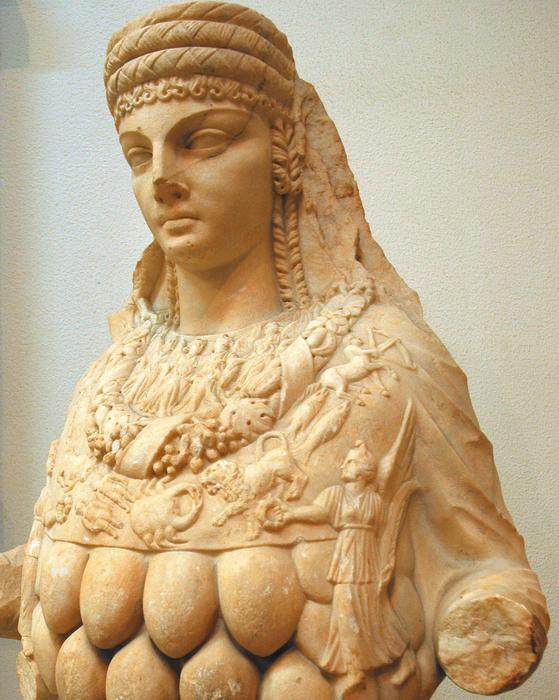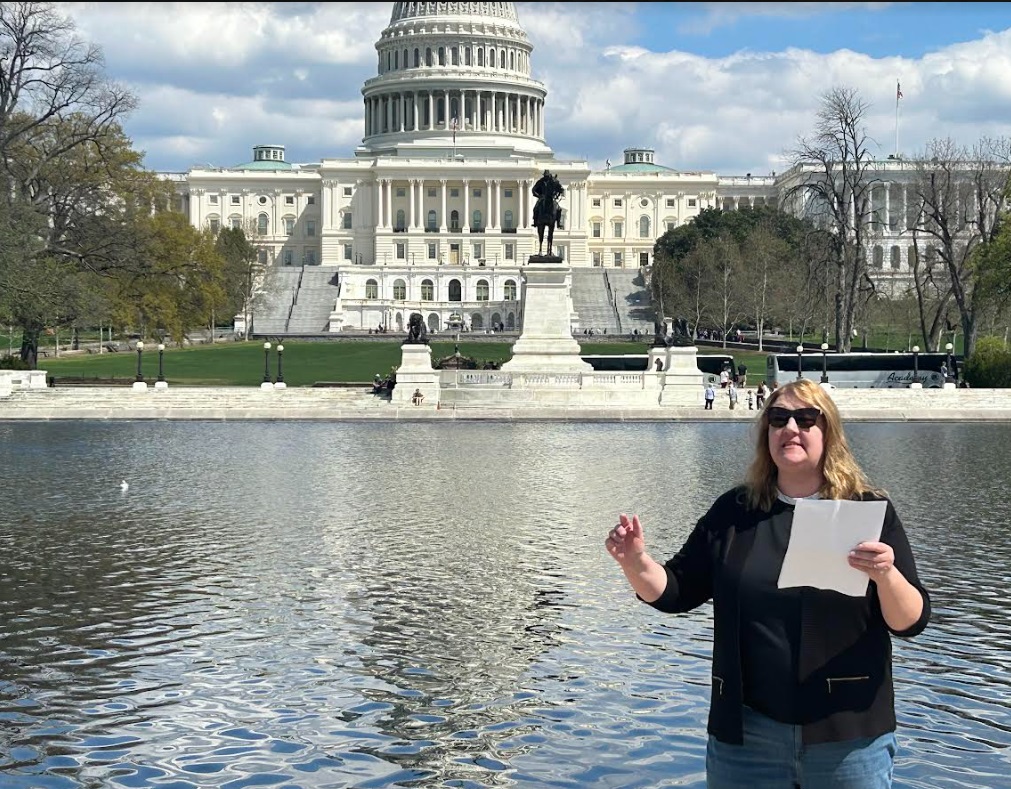 “I Suffer Not a Woman to Teach” What is going on in I Timothy 2:7-15?
“I Suffer Not a Woman to Teach” What is going on in I Timothy 2:7-15?
First two Translations:
(King James Version):Whereunto I am ordained a preacher, and an apostle, (I speak the truth in Christ, and lie not;) a teacher of the Gentiles in faith and verity.8 I will therefore that men pray every where, lifting up holy hands, without wrath and doubting.9 In like manner also, that women adorn themselves in modest apparel, with shamefacedness and sobriety; not with braided hair, or gold, or pearls, or costly array;10 But (which becometh women professing godliness) with good works.11 Let the woman learn in silence with all subjection.12 But I suffer not a woman to teach, nor to usurp authority over the man, but to be in silence.13 For Adam was first formed, then Eve.14 And Adam was not deceived, but the woman being deceived was in the transgression.15 Notwithstanding she shall be saved in childbearing, if they continue in faith and charity and holiness with sobriety.
(Young’s Literal Translation):in regard to which I was set a preacher and apostle — truth I say in Christ, I do not lie — a teacher of nations, in faith and truth.8 I wish, therefore, that men pray in every place, lifting up kind hands, apart from anger and reasoning;9 in like manner also the women, in becoming apparel, with modesty and sobriety to adorn themselves, not in braided hair, or gold, or pearls, or garments of great price,10 but — which becometh women professing godly piety — through good works.11 Let a woman in quietness learn in all subjection,12 and a woman I do not suffer to teach, nor to rule a husband, but to be in quietness,13 for Adam was first formed, then Eve,14 and Adam was not deceived, but the woman, having been deceived, into transgression came,15 and she shall be saved through the child-bearing, if they remain in faith, and love, and sanctification, with sobriety.
Some things to note about this passage:
1) Scholars agree that 1 Timothy is not actually written by the Apostle Paul. It is considered a “Pseudo Pauline” letter, written in Paul’s name. Both the vocabulary and the style of Greek grammar are unlike the authentic Paul letters.
2) The idea that I Timothy 2 could be speaking here against women in church leadership does not make sense, given this list of women who worked along with Paul in churches:
a) Priscilla, Paul’s traveling companion giving instruction to Apollos at Ephesus. (Acts 18:26)
b) Junia, an apostle (Romans 16:7)
c) Euodias and Syntyche, co workers of Paul (Phil. 4:2-3)
d) Pheobe, a deacon and a church leader (Romans 16:1-2)
e) As well as the church in Philippi (Acts 16:12-15, 40)
f) Churches that met in women’s homes (Acts 12:12; Col 4:15; I Cor.1:11,16:19; Rom 16:2-5; 2 John.)
This verse is not about women speaking or working in a church context, but is instead making a very different theological point.
3) The Greek verb αὐθεντεῖν (authentein) used in I Tim 2:12 is a unique verb used only here in this one place in the Bible. Scholars have been arguing over the correct translation of this one word for centuries. The verse literally says:
διδάσκειν (to be teaching) δὲ (but, yet) γυναικὶ(woman) οὐκ (not) ἐπιτρέπω,(I am permitting) οὐδὲ (not but, yet)
αὐθεντεῖν (???) ἀνδρός,(man, husband) ἀλλ’(but) εἶναι (to be) ἐν (in) ἡσυχίᾳ.(quietness)
4) If I Tim. 2:12 was wanting to say that women should not be in leadership or in authority over their husbands or men in general, a different and much more common Greek word would have been used. The author would have used “Prostasis” which meant leader. The root word of Prostasis means,“command”. (Incidentally, this exact word, Prostasis is used to describe the leadership of Pheobe, a woman minister in Romans.)
5) So why this weird word here? What specific meaning is the author getting at? When we look for some clues from the rest of this passage, we get the sense that there is some theological point that this being made here.The author talks about creation order for men and women in Genesis, the fall of women and men and also about childbearing. Right before this, the author was also talking about women not falling in with the ways of the culture in which they were in, but about being modest and doing g ood works.
ood works.
6) What else do we know about this context? I Timothy is a letter that is being sent to people in Ephesus. The context of Ephesus was that there was a huge and famous temple to the goddess Artemis (Diana) in Ephesus. This was one of the seven wonders of the Ancient world. This temple held an image of the Mother goddess Artemis, a statue that was complete with a chest full of breasts (some scholars argue that they are strings of bull testicles) In Acts 19:23-41, the popularity and the power of the worship of the goddess Artemis is documented when a riot (instigated by the silversmiths) breaks out about Paul speaking out against their goddess.
7) With the strength of the goddess worship in that town, it would not be surprising at all to find that 1 Timothy is making a point in regard to goddess worship theology. In their theology, the mother goddess Artemis (a female) gave birth to men (males). This would be against the creation order in Genesis.
Dr. Catherine Kroeger argued that the word authentein is being used here in a theological argument against the Ephesians mother goddess, Artemis. Her translation of the Timothy passage is this: “Let the women learn in submission. I do not permit a woman to teach that she is the source for men, but to be quiet (about the fact that all men are born from women.) For Adam was formed first, and then Eve. And Adam was not deceived, but the woman, having been deceived, brought sin. But women shall be saved through the childbirth, if they remain in faith, and love, and holiness, with sobriety.”
8) A final point about being “saved through childbirth”: Women would give sacrifices to the goddess Artemis to get pregnant and also to have a safe pregnancy and birth. The author of Timothy is against such practices. He encourages their good behavior and faith in God instead. The last phrase about being saved is also a double entandre, in that it not only stands for women’s own childbearing experiences, but also for the birth of Jesus Christ.
References:
Common stuff off internet with cool pictures!:
http://www.livius.org/ei-er/ephesus/ephesus_artemis.html
http://en.wikipedia.org/wiki/Artemis_Ephesia
http://en.wikipedia.org/wiki/Diana_%28mythology%29
Scholarly References
Kroeger, Richard Clark and Catherine Clark, Baker, 1998

